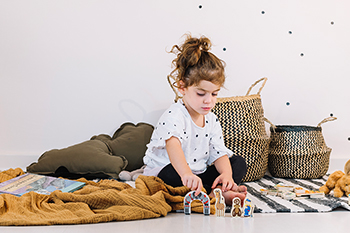Every family faces challenges sometimes. Asking for help can seem overwhelming, but seeking family therapy in Las Vegas can help you find healthy ways to cope and improve communication. Whether you are struggling with stress, grief, anger, mental illness or other issues, working through conflict and sorting out your feelings in family therapy can also help to strengthen bonds between family members.
 Although each person is an individual with their own personality and emotional needs, families are interconnected. One family member’s problem can have an impact on everyone. Examining family roles, patterns of behavior and specific issues that lead to conflict can also help you identify your strengths and learn new skills that you can use to deal with challenges in more productive ways.
Although each person is an individual with their own personality and emotional needs, families are interconnected. One family member’s problem can have an impact on everyone. Examining family roles, patterns of behavior and specific issues that lead to conflict can also help you identify your strengths and learn new skills that you can use to deal with challenges in more productive ways.
Some members of the family may also attend individual sessions. For example, if one member of the family suffers from a mental illness or addiction, they may continue with an individualized treatment plan and their own therapist in conjunction with family therapy. Even if the person hasn’t sought treatment, family therapy can help everyone understand the impact the issue has on the family and how to deal with it.
In your first session, your family therapist will want to get to know you and may meet with each person individually, together, or both. They will ask everyone to give their perspective on what’s happening in your family. To get a better understanding of what’s going on, they might ask when the issues arose, your personal feelings about the problems and how your family has tried to cope to this point.
On average, families usually see a therapist for about 12 sessions. The frequency of your meetings and how many sessions you will attend depend on your family’s specific issues and goals. It’s important to remember that a family therapist isn’t there to blame anyone or take sides. The goal is to improve communication, reduce conflict and help you all live happier lives.
Going to family therapy in Las Vegas doesn’t mean that a problem will go away, but it can help you learn skills that enable you to deal with challenging situations in a healthier manner. Family therapy may help you:
Sometimes emotions may run high, but ultimately, family therapy can bring you closer, help everyone learn how to express themselves in an effective manner and give you the tools you need to manage issues when they arise.
Although family therapy can’t prevent or erase all unpleasant situations, it can help you and your family members understand each other better and help you cope in a more effective way. To schedule an in-person or teletherapy session, contact a therapist directly at Kayenta Therapy today.

There are lots of benefits to family therapy. It helps improve communication and allows you to solve problems cohesively, which can bring everyone closer together. There are up sides for each individual member of the family, too. Having good self-esteem is critical for children to thrive and live their dreams. Family therapy can have a positive impact on your child’s self-esteem in many different ways.
When one person in a family is struggling, it affects everyone. Many people seek family counseling when a spouse or child has an addiction problem, mental health issue, eating disorder, or other chronic condition. Traumatic events, like domestic violence, the death of a loved one, divorce, or another loss can throw everyone into a tailspin. Dealing with feelings of grief, anger, anxiety, and depression is challenging for adults and kids alike. Family therapy can help you sort it all out and give you tools to develop communication and coping skills that lead to healing.
Low self-esteem can be caused by many different factors. Children and teens may compare themselves to others, and with the rise of social media they often have the perception they have to look a certain way or have certain things to be happy.
Children who are struggling at school, dealing with bullying, depression or other problems, sometimes have a hard time opening up to their parents. Sharing in a safe setting with a therapist present can make it easier for them to express themselves. Unloading negative feelings is often a relief. Parents may not even be aware that their children are suffering. Talking about these serious issues in family therapy and responding to your child in a supportive way can make them feel safe and loved, which can boost their feelings of self-love and confidence.
Family therapy can help parents learn how to listen and support their children without judgment. When parents share they struggle sometimes, too, it can help children feel like they’re not alone. We all have different things that make us who we are. Celebrating uniqueness and telling your child you love them just as they are can give them a solid base of confidence and allow them to build good self-esteem, regardless of the challenges life may throw at them.
Seeking therapy as a family can also help you develop and maintain healthy boundaries, understand family dynamics and patterns, foster communication, and build empathy and understanding. Reducing family conflict and learning how to deal with it productively when it does arise can make everyone feel more confident and provide your children with the knowledge and skills that they need to form loving, healthy relationships with themselves and others.
If you’re concerned about your child’s self-esteem or need to improve your family’s communication skills, we can help. Contact a therapist at Kayenta directly to schedule an appointment for family therapy.

In the age of technology, more and more people, especially children, are used to occupying their minds constantly, whether it’s with video games, scrolling through social media, surfing the internet, or watching TV. Although these things aren’t bad in moderation, there’s something to be said for sitting with a quiet mind, playing, creating, and using your imagination, which are vital to the healthy development of any child.
However, there’s no getting around the fact that sometimes communication can be tough, so if you’re having issues with your child refusing to stop playing video games or hounding you about being bored, family therapy is an option that can help.
Boredom is good for kids (and adults!). It spurs the imagination and forces them to engage with themselves, which allows creativity and self-reflection to flourish in a positive way. When you provide an endless supply of attention, you’re actually keeping your children from developing important skills that will benefit them throughout their lives. Imagination and creativity lead to innovation and better problem-solving skills.
Allowing your child to be bored also helps them realize spending time alone and getting to know yourself isn’t a bad thing. Although social contact is a vital part of the human experience, so is learning to be comfortable with yourself. Children need “me” time, too. Letting them spend time using their own skills and ideas to self-regulate is a gift you can give them that will help them become well-rounded adults. Family therapy can also give your child the tools they need to help build self-confidence and be comfortable in their own skin.
If your child comes to you and says they’re bored, they may just want to spend some time with you. If you’re doing chores like folding laundry, ask them to help. If you have the time, read a book together, play outside, go swimming, or visit a museum.
Although it’s great to engage with your kids, it’s also important to remember you’re not there to entertain them 24/7. Making sure they have plenty of art supplies, costumes for dress-up and creative play, and anything else they may be interested in. Signing them up for activities like music lessons or sports can also be helpful, but be careful you’re not filling their days up too much.
Sometimes, when kids say they’re bored, they’re really looking for stimulation and challenges. Make sure they have toys, puzzles and books and they’re getting enough exercise. If they’re old enough, send them outside to play and explore.
Family therapy can help you understand the importance of letting your child be who they are and bring you closer together. It will give you the tools to effectively communicate with your children and spur them to be resourceful and self-sufficient. Contact a therapist at Kayenta to schedule a session today.
During the school year, divorced parents usually have a schedule in place with set parenting times and days. With vacations, summer camps and other activities, summer can be a more challenging time to navigate as a co-parent. Before the school year ends, it’s a good idea to review your parenting plan with your children’s co-parent and communicate about summer plans. One effective way to cut down on conflict is to discuss these issues in family therapy. A therapist can help you come up with an equitable plan that will benefit you and your children while keeping stress to a minimum.

Start planning for the summer as early as possible. If you plan your summer schedule in January, discuss it with your co-parent to avoid conflict over vacations, graduations, family reunions, and summer holidays. It’s also important to agree on how you’re going to split day-to-day parenting time. Always put your children’s needs first when creating a custody schedule and deciding on summer plans. Summer is an exciting time of year for kids and an opportunity to make memories with both parents and explore new experiences.
Many co-parents take the “two weeks on, two weeks off” approach, as it gives some continuity to the time they spend with their kids. If you live close by and normally share custody on different days of the week, this can work too with little disruption to your children’s schedules. Once you have your parenting schedule set, keep in mind that it’s still beneficial to be flexible with summer plans to ensure a fun, relaxing time for you and your kids.
Children need to be heard when making summer plans, so you’re both aware of their needs and the things they’d like to do. It’s particularly important to talk with your older children about their wishes. A family therapy session where everyone is included and has a chance to express their desires can make the summer much more pleasant for everyone.
Coordinating schedules, daycare, vacations, and other activities is just part of the bigger picture when creating a summer co-parenting plan. Kids often feel guilty for leaving one parent alone and may be hesitant to go on a trip if they think one of their parents is going to feel bad. Encourage your children to have fun with their other parent and build a strong relationship. Refraining from negative talk and being considerate and respectful of each other’s feelings will show your children that you have their best interests in mind.
Family therapy can help you create a summer co-parenting schedule that allows you and your kids to better enjoy your time together. To learn more, contact a therapist at Kayenta to schedule an appointment.
Conflict between parents and children is usually unproductive and tends to escalate quickly. If you want to reduce the conflict in your home, there are some highly effective techniques you can implement. Family therapy will help you put these techniques into consistent practice, as well as gain additional tools to help mitigate tension.

Keep Your Cool
When you get frustrated with your child, it can be challenging to maintain your composure. As soon as you feel yourself becoming upset and irritated, remind yourself that most of the time, it’s not so much about what you say, but how you say it. Even when it’s difficult, learn how to keep your cool in these challenging parenting situations.
There’s nothing wrong with taking a breather if you need to regain control of your emotions. Stepping away is much better than escalating the problem. Tackle the situation when you are able to discuss it calmly with your child. While they still might not always like what you have to say, their reaction will usually be completely different when you treat them kindly and with respect.
Establish Eye Contact
Imagine you are trying to get your child’s attention, but they are distracted by a toy or the TV. You become frustrated and raise your voice to grab their attention. This gives the impression you are upset with them, leading to needless conflict. Instead of raising your voice, focus on establishing eye contact with your child. Once you make eye contact, you can calmly discuss whatever you need to.
Stick to a Routine
Children tend to benefit from a structured routine. Create daily schedules for things that tend to create conflict in the family – like doing homework or going to bed. It will be an adjustment period as your child gets used to doing things at a set time every day, but the conflicts should subside once the routine becomes a habit.
The therapist will help your family talk and work through the difficulties you are facing and offer specific, personalized advice. They can also provide a fresh, healthy perspective. For more than 10 years, therapists at Kayenta Therapy have provided family therapy and low cost therapy options to patients. If you’re ready to schedule a session for you and your family, contact one of the therapists today.
If you’re thinking about attending family therapy, you’re probably feeling many strong emotions. Perhaps your marriage or partnership is in trouble. Or maybe you’re going through a divorce and your children are having difficulty coping. You may think of therapy as a last resort for when your life is falling apart, but the truth is something far different. Family therapy is a positive experience that can greatly enhance your family’s life.

Family dynamics, divorce, addiction issues, anxiety, grief, and communication problems are just some of the reasons people find themselves seeking family therapy. A qualified family therapist can help you identify and uncover what keeps you from reaching your full potential as a person, as a partner or as a parent. People from all walks of life consult with counselors to make their lives more gratifying and to gain better focus on communicating effectively.
So, what does a family therapy session entail? Professional therapists understand that every person has specific needs and each situation is different. Sessions, therefore, will vary based on what approach works best for you.
At Kayenta Therapy, therapists are trained in a wide range of specialties, including cognitive behavior (CBT), Gestalt, mindfulness-based (MBCT), Jungian, and many more. Each method addresses specific issues that are affecting your family’s life. Using different techniques and exercises, your therapist will thoughtfully guide you through what’s behind behavioral or emotional problems family members are coping with.
The goal of family therapy is to strengthen the family unit so everyone is better equipped to interact with one another and make decisions together. Here are just a few of the approaches a family therapist might use:
When you meet with a family therapist for the first time, you may feel an enormous sense of relief. The nurturing and non-judgmental environment can help you not only pinpoint problem areas, but also recognize and admire the strengths of the family unit. Learning to celebrate the good things and feel a stronger connection as a family is just one of the many joys of therapy.
There are many professionals practicing family therapy, and if you don’t feel a connection with the first one you meet with, keep looking! If you’re ready to find the right family therapist for you, browse our online directory and contact the therapist of your choosing to schedule your first session.
Many couples flounder in troubled marriages for too long. By the time they finally agree to seek help together, the relationship is already so far gone that they need intensive therapy to revive their marriage. Often, the reasons couples wait so long before seeking help is they believe they have to go to therapy together. Our Las Vegas family therapy center has seen this scenario many times, and as long as at least one partner in the marriage is ready to take a step forward, couples therapy can be successful.

So, your partner refuses to see a marriage counselor? While this can be frustrating, the good news is you can still go, and by doing so, you can start improving the state of your relationship. Couples therapy is really about learning how to successfully interact and navigate relationships.
At our Las Vegas family therapy center, therapists will assist you in improving your conflict management and communication skills. During the process, you’ll learn how to identify the negative patterns in the way people interact, how to recognize your own role in those patterns and learn how you can change your reaction to improve how you approach situations and conflict. While it is best that both partners learn these skills together, when you increase your own abilities in this area, you will ultimately improve the quality of your relationship.
Have you ever heard the aphorism, “A rising tide lifts all boats”? It’s a saying generally reserved for politics and economic matters, yet, it also pertains strongly to interpersonal relationships. The idea here is that improvement in one part (or one person) of the relationship can improve all other aspects of the relationship. This is because the nature of a relationship is defined by two people’s actions and reactions toward each other. If one person learns how to stop acting and reacting in anger and, instead, acts and reacts in a more positive manner, the positive energy gets shared and both partners benefit.
If you begin couples therapy as an individual and your partner agrees to join you after several sessions, then you may consider seeing a different counselor for joint sessions so your partner feels comfortable. Our Las Vegas family therapy center is here to help you and your family succeed and are dedicated to providing you with the best resources and skills you need to do so. If you’re ready to get started, contact Kayenta Therapy at 702-438-7800 today!
Mental and emotional health are just as important as physical health. This is true of individuals and families alike. At Kayenta Therapy in Las Vegas, we offer various services to assist family members dealing with major life transitions, difficult circumstances and specific mental or behavioral issues. A question commonly asked by our clients is whether or not insurance covers their family therapy.
In most cases, the answer is yes. However, insurance plans must follow the Paul Wellstone and Pete Domenici Mental Health Parity and Addiction Equity Act (MHPAEA). Commonly referred to as the Federal Parity Law, this 2008 act requires most healthcare insurance companies to ensure the same coverage of treatment for mental illness and addiction as they do for physical ailments.
If you have the following types of healthcare plans, your insurance will likely cover family therapy as much as it covers physical-based healthcare:

Currently, in addition to any grandfathered in plans, the following types of health insurance are not required to follow federal parity (although some still comply):
Some of our clients are reticent to attend family therapy due to a concern that their employer might find out. If you are self-insured, your employer cannot obtain any type of health information about you from any healthcare provider without your authorization, with a few legal exceptions requiring disclosure. At Kayenta, we provide special low-cost therapy solutions for those who would rather pay out-of-pocket for complete privacy than have claims listed on their insurance.
For those on a group plan through an employer, the insurer can provide your employer with an overview about your healthcare, including the name of a therapy clinic. However, the Americans with Disabilities Act provides protection and prevents an employer from using mental and emotional treatment therapy as a reason to terminate or otherwise discipline employees. To learn more about family therapy in Las Vegas or to book a session, contact us today at 702-438-7800.
Children are often left confused and scared after a loss or frightening event. They may wonder if they are safe or if something could happen again to someone they love, and the anxiety can start to spread into other areas of their lives.
These thoughts and feelings are all normal and responding to them with care is critical to ensuring your children’s well-being. Las Vegas family therapy can equip you with the tools you need to help your children cope.

Following a tragedy, little minds can get information overload quickly. As more and more information is discussed or revealed, anxiety and stress can increase for your little ones. Turn the news off and keep discussions about family events as private as possible. Have distraction-free conversations with your kids.
While you don’t want to mislead your children or gloss over important specifics, there’s no need to go into detail about violent or frightening events. Your kids will probably have lots of questions and being open and honest will help them feel safe. However, be sure to add reassurances to your answers and leave out disturbing details.
In the days and weeks following a tragedy, questions, concerns and other issues will present themselves at unexpected times. Perhaps your child has been thinking about an aspect of the event. By spending extra time with your kids, you’ll not only help build a sense of security, but you’ll also be available for these discussions.
If your child is showing signs of extreme fear and anxiety such as restlessness, difficulty concentrating, or changes in appetite and activity level, consider speaking with a Las Vegas family therapy expert. At Kayenta, we’re dedicated to giving parents and children the tools they need to feel safe and succeed in every area of their lives. Contact us today at 702-4387800 to learn more.
Childhood should be a carefree time when kids don’t have to worry about much. Unfortunately, that’s not always the case. A large number of school-aged children experience stress. It’s detrimental for their emotional and physical well-being. If your child is stressed and needs help, Las Vegas family therapy may be the answer.
Stress is an ongoing challenge for anyone. But, a child may have a harder time coping due to their emotional and mental immaturity. Las Vegas family therapy can help your child learn how to face fears and express emotions appropriately. It gives you the chance to model the right behaviors so your child can too. If your child needs help managing his or her stress, contact Kayenta Therapy today at 702-438-7800.